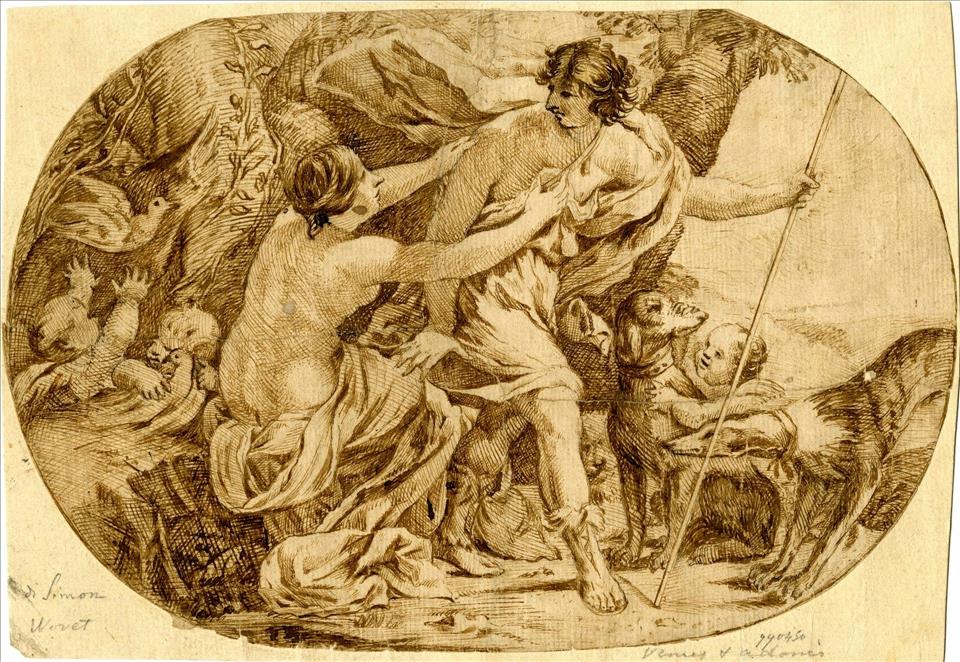
Did People In Ancient Rome And Greece Love The Same Way We Do? Perhaps Even More Hopelessly
Most people living today have felt some form of passionate romantic love, or will at some point in their lives – often with heartbreak in equal measure.
When we have problems with love, we like to console ourselves by thinking this happens to many other people. This is certainly true.
It has, of course, been happening for thousands of years.
Why do we fall in love?One of the most famous ancient accounts of passionate love is found in the writings of the physician Galen (126–219 AD) who worked in Rome. In his book On Prognosis, Galen describes how he paid a call to the house of a man whose wife seemed unwell – suffering from insomnia, yet not with fever.
Galen questioned her, trying to find out why she couldn't sleep, but she was unresponsive:
On subsequent visits, he discovered the woman was in love (and infatuated) with a dancer called Pylades, whom she had seen dancing at the theatre in the city. Her poor condition came from knowing her love could never be more than a secret desire.
Erastes (lover) and eromenos (beloved) kiss in a scene an Attic cup created circa 480 BC. Wikimedia
Ancient people recognised how love could occur seemingly randomly, for reasons both simple and complicated.
In a play called The Man Who Loved Musical Pipes by Theophilus (4th century BC), one of the characters explains his basic reasons for having fallen in love with someone:
Ancient lovers' passionate embraces and affections have sometimes been recorded in intimate detail.
In one anonymous (of uncertain date), the author describes how, after his lover won a boxing contest, he went and kissed him on the lips even though his face was covered in blood:
The difficulties with loveThere are many Greco-Roman stories about unrequited love and the miseries it can bring.
According to the philosopher Aristoxenus (4th century BC), one woman named Harpalyce died of grief after she fell in love with – and was rejected by – a man called Iphiclus.
A 1st century Roman mosaic depicting a love scene. Wikimedia
There are also stories of people struggling to be with (and stay with) their lovers.
Galen explains how one of his patients, a slave, pretended to have a knee injury so he wouldn't have to travel away from his lover for work.
Elsewhere, Galen writes about people engaging in secret love affairs:
He says, with dry humour, these“secret affairs” are the reason“the similarity between children and parents in humans is less pronounced”.
A bronze Roman knife-handle decorated with lovers, circa 1st or 2nd century. British Museum , CC BY-NC-SA
Spouses also bickered back then, much like today. In a letter from around 200 AD, a man travelling in Alexandria, Egypt, wrote home to his wife to complain how she didn't seem to care much about him:
Is love a sickness?Some ancient doctors thought love was a major factor in determining a person's mental and physical health.
Galen, for instance, believed love could be blamed for some of his patients' ailments.
Galen of Pergamum depicted in a 1906 work by Portuguese artist Veloso Salgado. Wikimedia
Galen recommended people with lovesickness should change their lifestyles and engage in bathing, drinking, horse riding and travelling. He also advised them to invest their emotions into other matters such as gladiator fights or hunting with dogs.
Other doctors thought love was so powerful it could potentially cure people's psychological problems. The 5th-century physician Caelius Aurelianus said love could be both the cure and the cause of insanity.
Either way, there's no denying itIn one of his plays, the influential playwright Antiphanes (active in the early 4th century BC) wrote :
So the next time love is on your mind, take comfort in knowing you're not alone. For millennia, people have dealt with this difficult emotion – in all its glory and calamity – and come out the other side unharmed. Mostly, anyway.
-
Ancient Greece
Love
Ancient history
Ancient Rome
Greco-Roman
Love poems
Ancient world

Legal Disclaimer:
MENAFN provides the
information “as is” without warranty of any kind. We do not accept
any responsibility or liability for the accuracy, content, images,
videos, licenses, completeness, legality, or reliability of the information
contained in this article. If you have any complaints or copyright
issues related to this article, kindly contact the provider above.


















Comments
No comment